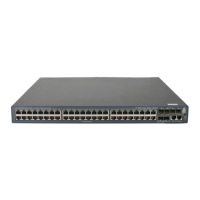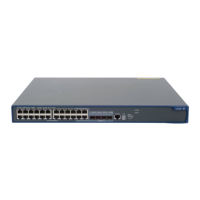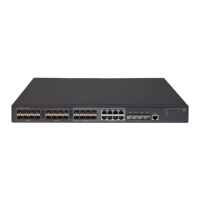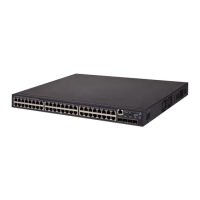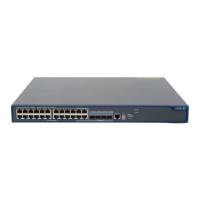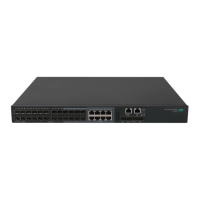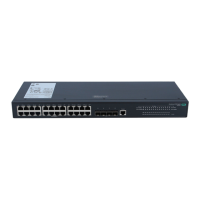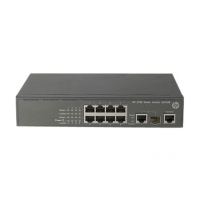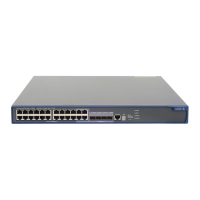227
Enabling 4-byte AS number suppression
BGP supports 4-byte AS numbers. The 4-byte AS number occupies four bytes, in the range of 1 to
4294967295. By default, a device sends an Open message to the peer device for session establishment.
The Open message indicates that the device supports 4-byte AS numbers. If the peer device supports
2-byte AS numbers instead of 4-byte AS numbers, the session cannot be established. To resolve this issue,
enable the 4-byte AS number suppression function. The device then sends an Open message to inform
the peer that it does not support 4-byte AS numbers, so the BGP session can be established.
If the peer device supports 4-byte AS numbers, do not enable the 4-byte AS number suppression function.
Otherwise, the BGP session cannot be established.
To enable 4-byte AS number suppression (IPv4):
Step Command Remarks
1. Enter system view.
system-view N/A
2. Enter BGP view or BGP-VPN
instance view.
• Enter BGP view:
bgp as-number
• Enter BGP-VPN instance view:
a. bgp as-number
b. ip vpn-instance
vpn-instance-name
N/A
3. Enable 4-byte AS number
suppression.
peer { group-name | ip-address }
capability-advertise
suppress-4-byte-as
By default, 4-byte AS number
suppression is not enabled.
To enable 4-byte AS number suppression (IPv6):
Step Command Remarks
1. Enter system view.
system-view N/A
2. Enter BGP view or BGP-VPN
instance view.
• Enter BGP view:
bgp as-number
• Enter BGP-VPN instance view:
a. bgp as-number
b. ip vpn-instance
vpn-instance-name
N/A
3. Enable 4-byte AS number
suppression.
peer { group-name |
ipv6-address } capability-advertise
suppress-4-byte-as
By default, 4-byte AS number
suppression is not enabled.
Enabling MD5 authentication for BGP peers
MD5 authentication provides the following benefits:
• Peer authentication makes sure that only BGP peers that have the same password can establish TCP
connections.
• Integrity check makes sure that BGP packets exchanged between peers are intact.
To enable MD5 authentication for BGP peers (IPv4):
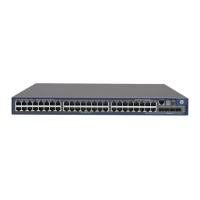
